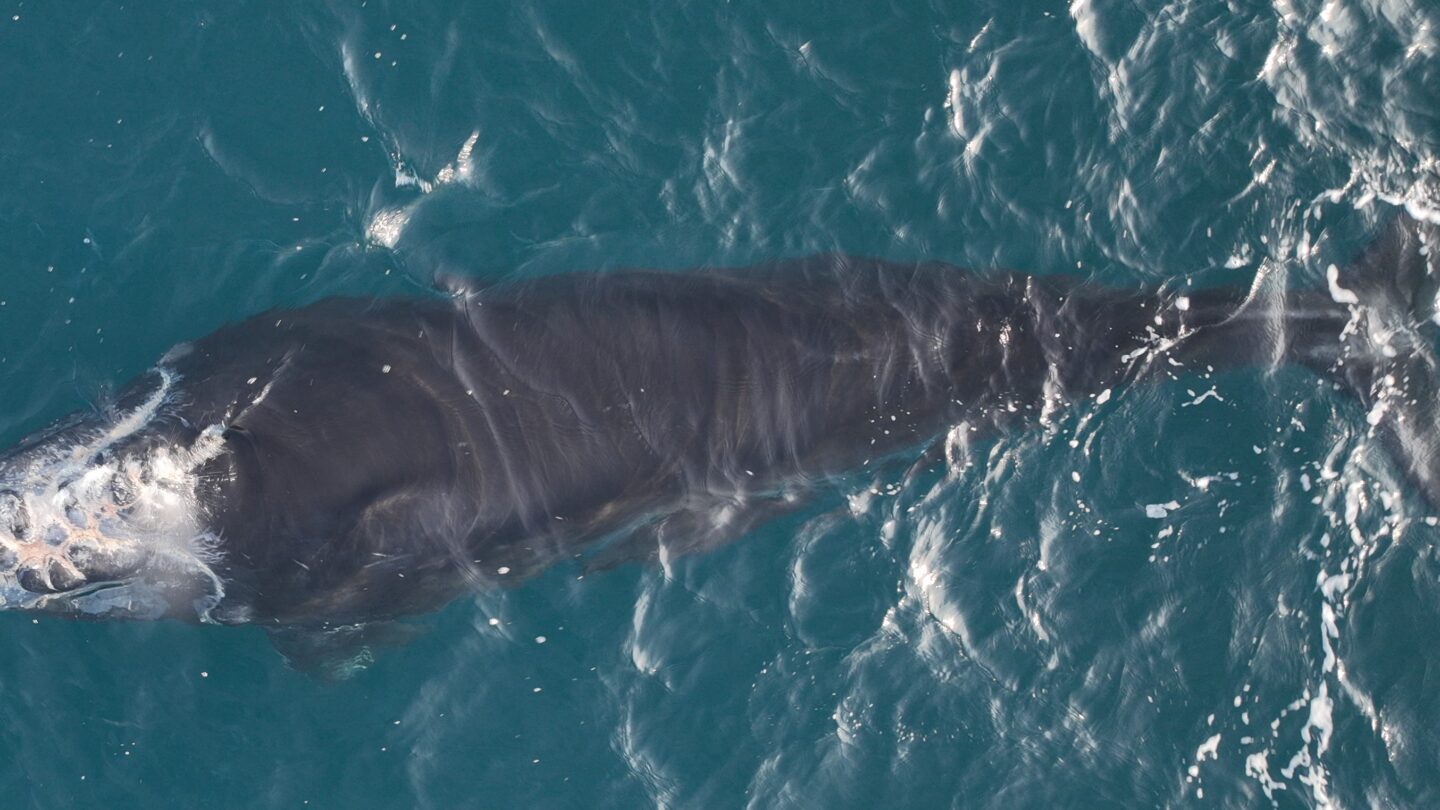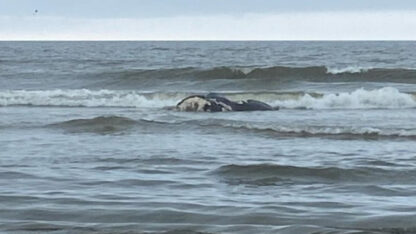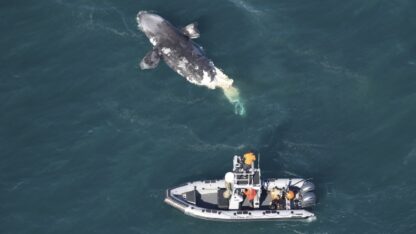Rule aimed at protecting right whales advances amid difficult year off Georgia coast

This coverage is made possible through a partnership with WABE and Grist, a nonprofit, independent media organization dedicated to telling stories of climate solutions and a just future.
Amid a difficult year for North Atlantic right whales giving birth off the Georgia coast, a proposed rule to help protect them is one step closer to reality.
Earlier this month, a proposal to expand speed limits for boats – one of the leading causes of death for the endangered whales – took a key step forward: it’s now under review by the White House Office of Information and Regulatory Affairs, the last stage of federal review.
Fewer than 360 of the whales remain; only about 70 of them are females of reproductive age.
Human actions, specifically strikes by boats and entanglements in fishing gear, are the whales’ leading causes of death. Three young whales have been found dead this year, two of them with wounds from boat strikes and the third entangled. One of the whales killed by a boat was a calf just a few months old.
“Our impacts are so great right now that the risk of extinction is very real,” said Jessica Redfern, associate vice president of ocean conservation at the New England Aquarium. “To be able to save the species, we have to stop our direct human-caused impacts on the population.”
To reduce the risk of vessel strikes, large vessels like the container ships calling at the Port of Savannah have to slow down near Georgia’s coast when the whales are likely to be around, from November to April.
The National Oceanic and Atmospheric Administration in 2022 proposed expanding those restrictions in three ways.
First, the new rule would cover larger geographical areas. In the Southeast, for instance, the current restricted zone would extend farther south along the Florida coast.
Second, the change would apply the speed limits to smaller craft, such as fishing boats, rather than only to ships over 65 feet.
Third, the new rule would make speed restrictions in what are known as dynamic management areas – places where temporary speed limits are imposed because whales have been spotted – mandatory. Currently, the rules are voluntary in those areas.
Since NOAA published and gathered feedback on the proposed rule in 2022, whale advocates have been clamoring for the agency to implement it. Those calls have increased in recent months as dead right whales have washed up on beaches.
“There have been three deaths, and that has been really devastating this year, and two of them are related to vessel strikes,” said Redfern. “It’s just highlighted that absolute urgency, the necessity of getting this rule out.”
A leading boating industry group is speaking out against the expanded speed restrictions, arguing they could hurt small businesses in the recreational boating industry.
“We are extremely disappointed and alarmed to see this economically catastrophic and deeply flawed rule proceed to these final stages,” said Frank Hugelmeyer, president and CEO of the National Marine Manufacturers Association, in a statement. “The proposed rule is based on incorrect assumptions and questionable data, and fails to distinguish between large, ocean-crossing vessels and small recreational boats.”
Right whale scientists have documented in recent years that small, recreational boats can injure and kill right whales. At least four of the lethal vessel strikes since the current restrictions began in 2008 have involved boats smaller than 65 feet and thus not subject to that speed limit, according to Redfern.
NOAA estimated that based on the size and placement of the propeller wounds, the boat that killed the months-old calf this year was between 35 and 57 feet in length – too small to fall under the existing speed restrictions but subject to the new rule if it were to be implemented.
In his statement, Hugelmeyer also pointed to new marine technologies aimed at detecting right whales in the water to reduce vessel strikes without expanding the speed rules.
Scientists like Redfern remain skeptical, though.
The tech “offers a lot of promise,” she said, but the speed limits are proven.
“It’s really important, I think, that we rigorously evaluate the technology that’s proposed to make sure that it is going to achieve the same type of risk reduction that we see with the slowdowns in expanded areas,” she said.
Last year, U.S. Reps. Buddy Carter (R-GA) and Mary Peltola (D-AK) introduced legislation to delay funding for the proposed new rule, after boaters, harbor pilots and others in the boating industry raised concerns about possible economic impacts. A similar bill was introduced in the Senate, but neither has advanced.








